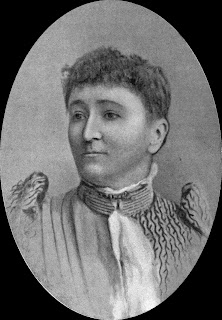But August 27th is also National Banana Lovers Day. That makes a little more sense to me when we Americans eat so many bananas. I bet it's the most popular fruit. Even I, notorious non-lover of fruit, like bananas. Statistics on the official National Banana Lovers Day website I found are that we each eat 33 pounds of bananas a year. That's about 100 bananas each. And did you know that although we think of bananas growing on trees, the banana plant is really an herb? Let's plant bananas in your window sill herb garden and see how they do.
These national observance days are proclaimed by the Pres or Congress, depending on who promotes them. Usually an industry, such as the United Pots de Creme Workers of America (WPDCWA) will lobby for their very own day. (Just kidding) but you get the idea. Or, citizens can also submit a petition to commemorate a cause for a day or a week or a month of the year.
This week is National Safe at Home week promoted by the organization known as the Safe At Home Organization.
 |
| No, Not that kind of Safe at Home! |
They say more people are injured in accidents at home than anywhere else and they are trying to prevent that from happening. So, let's be safe out there, people. At least for this week.
Among a dozen or so other causes in August, it happens to be "What Will Be Your Legacy?" month. I quite like this one. It's something that Martha J. Ross-Rodgers, a motivational speaker and author, came up with in honor of her mother. It's a time to reflect on what it is that we will want to be remembered for by our kids, grandkids, etc. Instead of just living the work-a-day life we get caught up in, just stop and think if what we are doing will have an impact on those we leave behind.
 |
| My dad and my son. |
But today is also "The Duchess" Who Wasn't Day. This one piqued my interest right off the bat and I had to find out what it was all about. And speaking of legacies, as it turns out, Margaret Wolfe Hungerford was an Irish novelist in Victorian days who we all have quoted maybe more often than any other writer without even knowing it.
 |
| The Duchess, Margaret Wolfe Hungerford |
She was born in 1855, the daughter of a local Vicar in County Cork. As a child, she used to love to make up stories and wrote some prize winning stories in school. She married a lawyer when she was very young, just 17. They had three daughters together but she became a young widow when her husband died after just 6 years of marriage. In order to support herself and her family, she wrote her first novel, Phyllis. Soon afterward she wrote her most well known book, Molly Bawn.
She wrote prolifically and was in great demand. She remarried in 1872 to Thomas Henry Hungerford. They had three more children. She managed to keep up her writing, and turned out many short stories and articles, as well as books. With such a large family, she was able to continue her writing career only with the self-discipline a good writer needs. She closeted herself away in her writing room without exception for three hours everyday. This is something I must try. Margaret died at the age of 42 of typhoid fever and left behind a large body of work.
She first published Anonymously. Then she published her works by Mrs. Hungerford. However, in the United States she published under the name of "The Duchess".
|
|
My guess is that most of my readers haven't ever heard of Margaret before today, and therefore might be wondering how you could ever have quoted her. Well, in The Duchess' second novel, Molly Bawn, Margaret reduced the sentiments of Shakespeare, Ben Franklin and David Hume and others to something much more familiar to us all.
Good Lord Boyet, my beauty, though but mean,
Needs not the painted flourish of your praise:
Beauty is bought by judgement of the eye,
Not utter'd by base sale of chapmen's tongues
Shakespeare, Loves Labours Lost, 1588
Beauty, like supreme dominion
Is but supported by opinion.
Ben Franklin, 1741
"Beauty in things exists merely in the mind which contemplates them."
David Hume, Essays Moral and Political, 1742
Have you guessed yet?
Margaret Wolfe Hungerford, aka The Duchess, coined today's commonly used idiom when it appeared in print for the first time in her novel Molly Bawn:
In Context:
“The cousin! I am so glad. Anything new is such a relief. And I have heard she is beautiful: is she?”
“Beauty is in the eye of the beholder,” quotes Marcia, in a low tone, and with a motion of her hand toward the open door inside which sits Molly, that sends Lady Stafford up-stairs without further parley."
 |
| If only these eyes could ever see but beauty. |
Have a great day, you beautiful people!
Love,
Suz








No comments:
Post a Comment